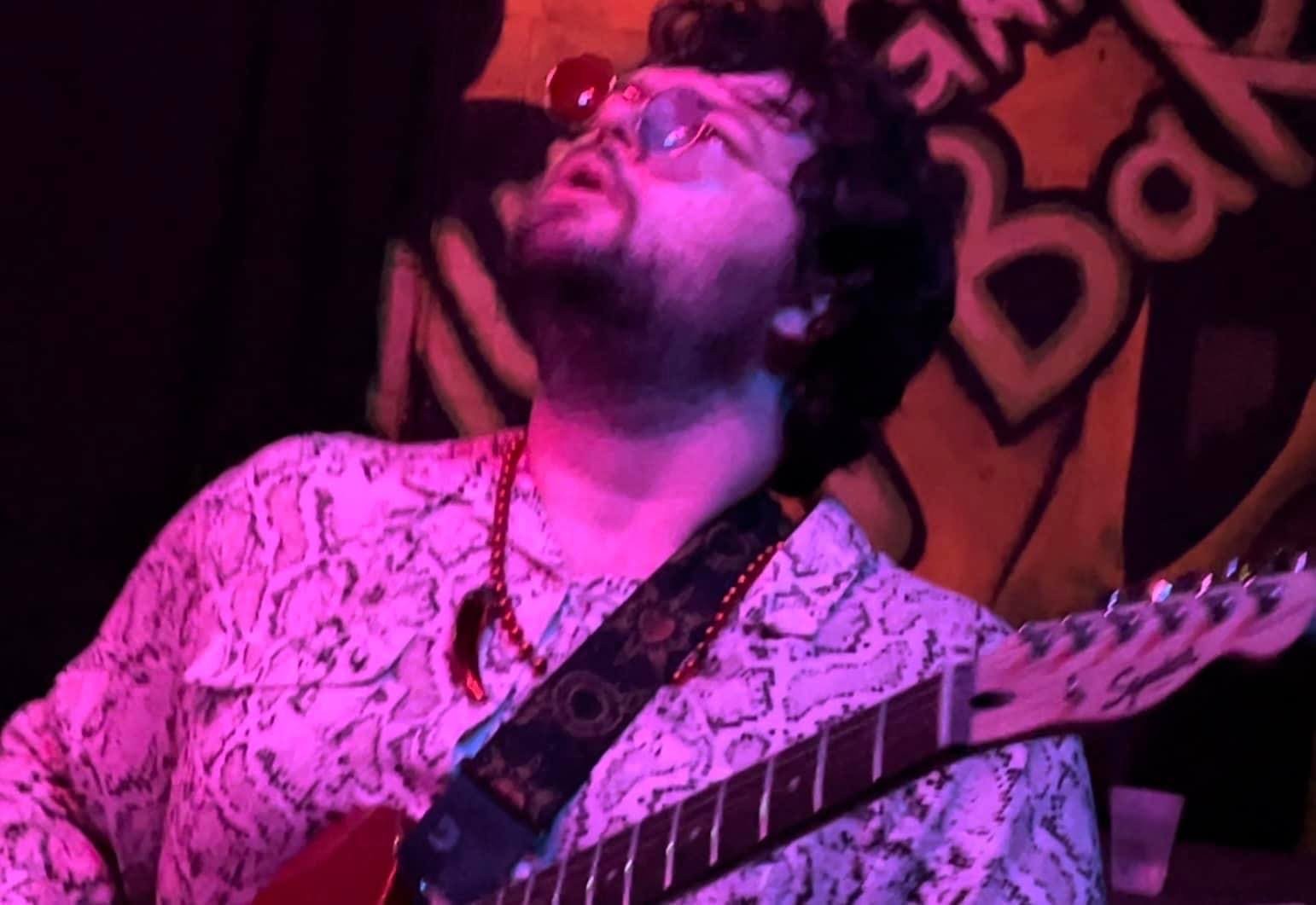We recently connected with Oliver Draper and have shared our conversation below.
Oliver, thanks for joining us, excited to have you contributing your stories and insights. How did you learn to do what you do? Knowing what you know now, what could you have done to speed up your learning process? What skills do you think were most essential? What obstacles stood in the way of learning more?
When I first got into music I had to be creative with the resources that were available to me. I used an iPad I received from my school to record with GarageBand using the built in microphone. I didn’t have a drum kit so at 5:30 in the morning I was in the band room at school using theirs before walking to my school, sometimes in a Michigan winter. I also wasn’t experienced or knowledgeable and being so young I just dived in and that’s how I learned a lot of what I know now. At first I wasn’t even aware of a metronome and I’d usually just record whichever track appears first in the song, even if it was vocals. So I could be playing bass or guitar with no drums keeping me on time, or singing with no music behind me. This gave interesting results and you can hear a lot of it on my first album.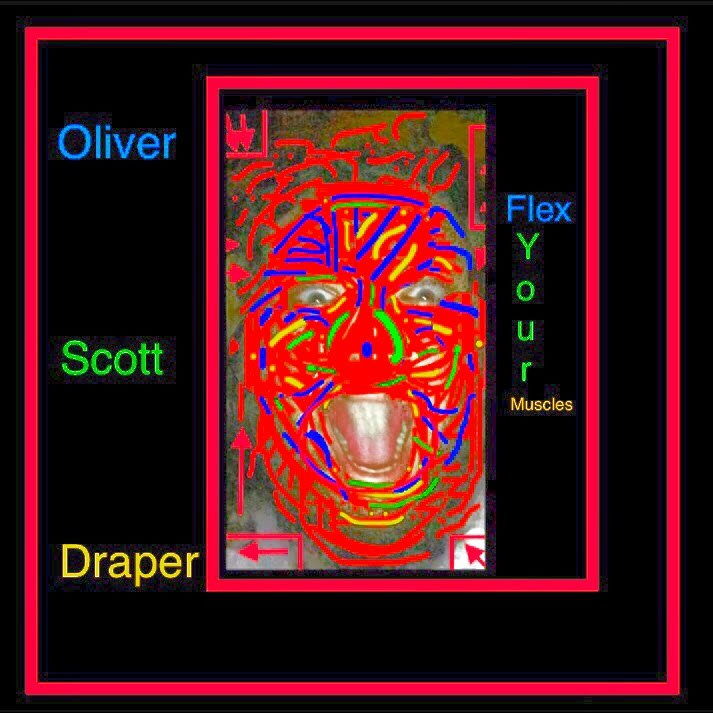
As always, we appreciate you sharing your insights and we’ve got a few more questions for you, but before we get to all of that can you take a minute to introduce yourself and give our readers some of your back background and context?
I’m primarily known as a musician, thought I’ve dabble in film and have many other avenues I explore. I got started when I recorded my first album at 14, I’d started playing guitar a year prior which I acquired by trading a skateboard for an acoustic. From there I’ve recorded several solo albums that are available pretty much anywhere online. I try to stand out by constantly evolving and avoiding one genre or sound, this is also for my own sanity. I’m proud that I’ve been able to maintain my own voice throughout this process and that I’ve done things my way. When I released a more recent album, for example, I did a limited CD release as well where I hand pained each case. I’d go beyond too and when someone ordered one I’d ask if they had a song from the album they liked and I’d base the cover around the themes of that song. I think this sort of conceptualization leaks into my work, I always have some messages, goals, or rules I set for myself when I’m working on a project. So, a lot of my music does have a lot of hidden meaning that I like to use to tie things together. Ultimately, it’s about creating something that sounds how I want and has the impact I want. The interactions I’ve had with people that stay with me is when someone tells me one of my songs helped them through a hard time. Because thats what drew me in to music, I was a weird kid going through a hard time and that was my escape, for that to come full circle is humbling.
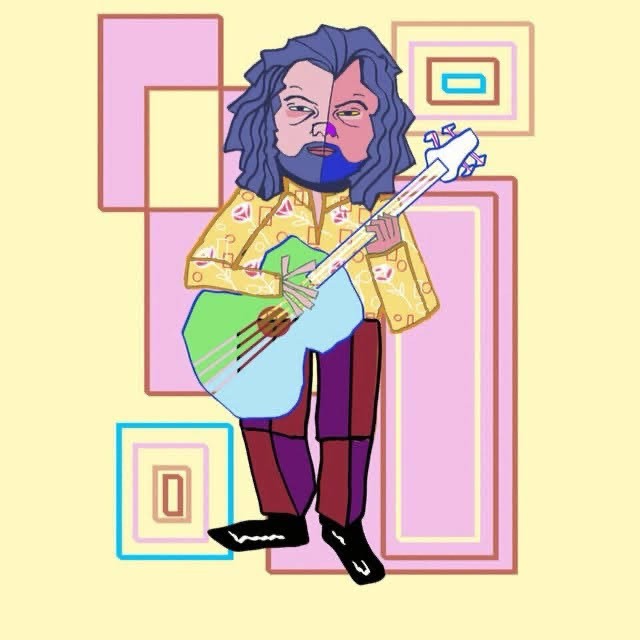
Are there any books, videos, essays or other resources that have significantly impacted your management and entrepreneurial thinking and philosophy?
I think other mediums besides music have had more influence on me that other artists or songs do. The book Siddhartha by Herman Hesse was poignant early on, it was suggested to me by a friend and gave me new perspectives on life and a lot of elements of the philosophies featured end up in songs later. My song “I Am a River” particularly came from a scene in that book where the main character looks into a flowing river and see themself with many faces. The horror film Under the Skin with Scarlett Johansson inspired another song “Xenonymph” on my album Flex Your Muscles, exploring the facades we put on and how communication in love can feel like speaking an alien language.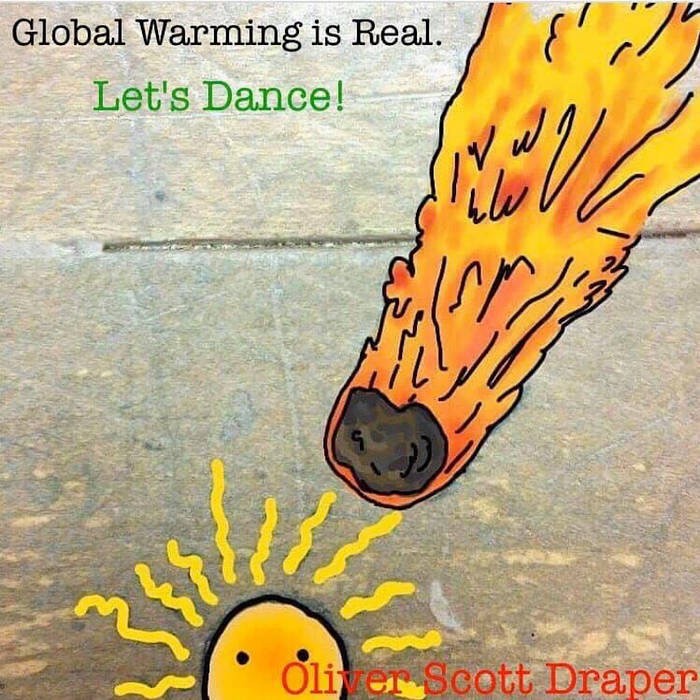
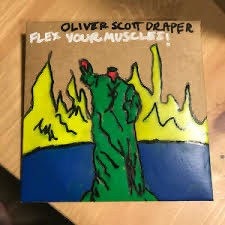
How can we best help foster a strong, supportive environment for artists and creatives?
Support your friends on a local level, how many hide their talents or don’t pursue them because they think it’ll go nowhere? We celebrate success but neglect the steps it takes to get there, it’s not easy for anyone. You’ll put out stuff people don’t discover for a while, you’ll be ignored and rejected, and play to empty crowds because we don’t show up for each other and we don’t take chances. Venues need to book that unknown group, and the people that show up would help greatly if they bought something from the artist directly and avoided streaming. At this point piracy is almost more beneficial to a musician than streaming is. 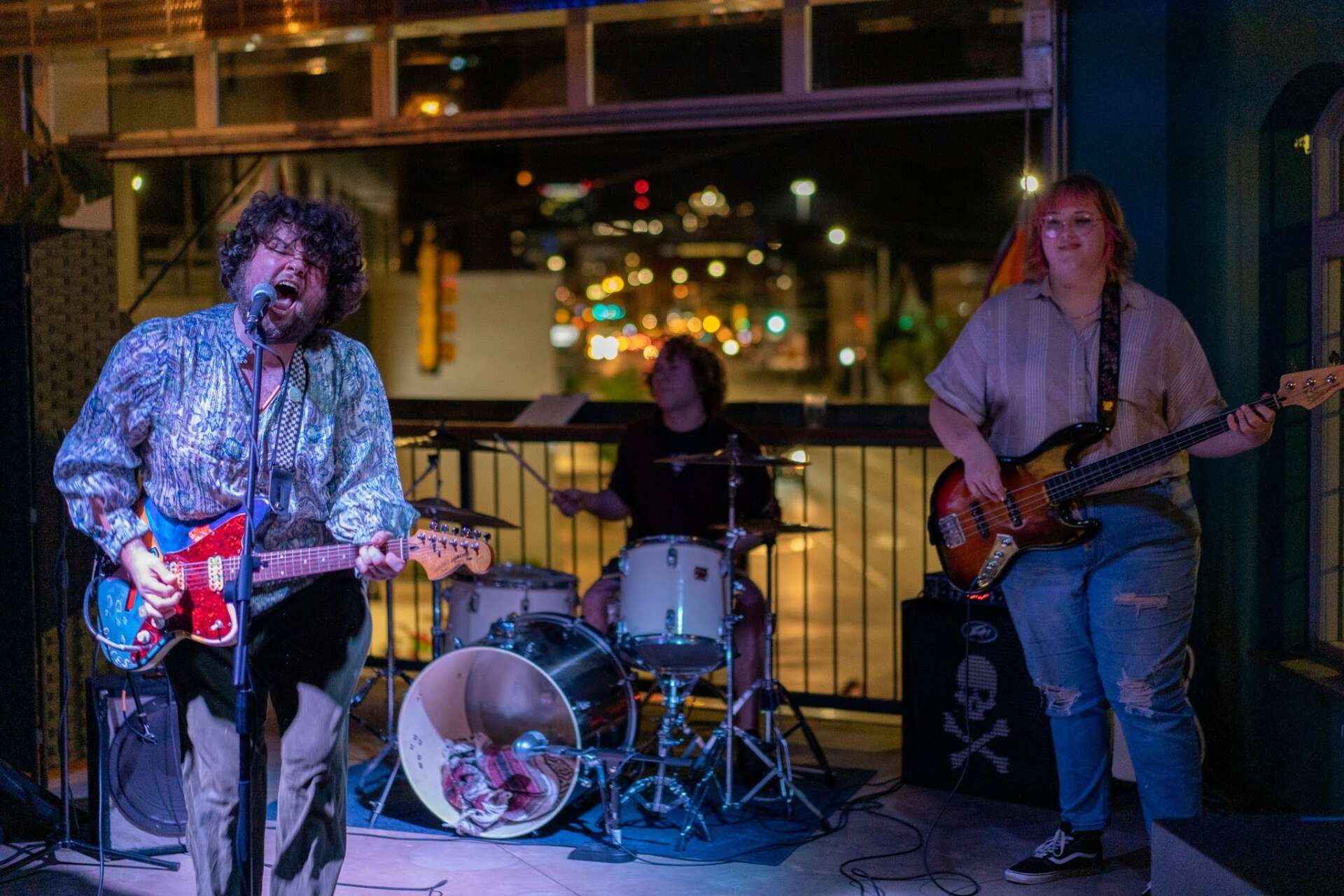
Contact Info:
- Website: https://oliverscottdraper.bandcamp.com/
- Instagram: https://www.instagram.com/oliverscottdrapermusic/
- Twitter: https://mobile.twitter.com/oliversdraper
- Youtube: https://youtube.com/channel/UCyCPY6pj7rq-TRdIsGWvYFg
- Other: Inquiries to [email protected]
Image Credits
Chloe Schans – Personal photo, digital coloring on Global Warming is Real Let’s Dance! cover, cartoon portrayal Julio Gomez – Performance photo with full band All other images by Oliver


